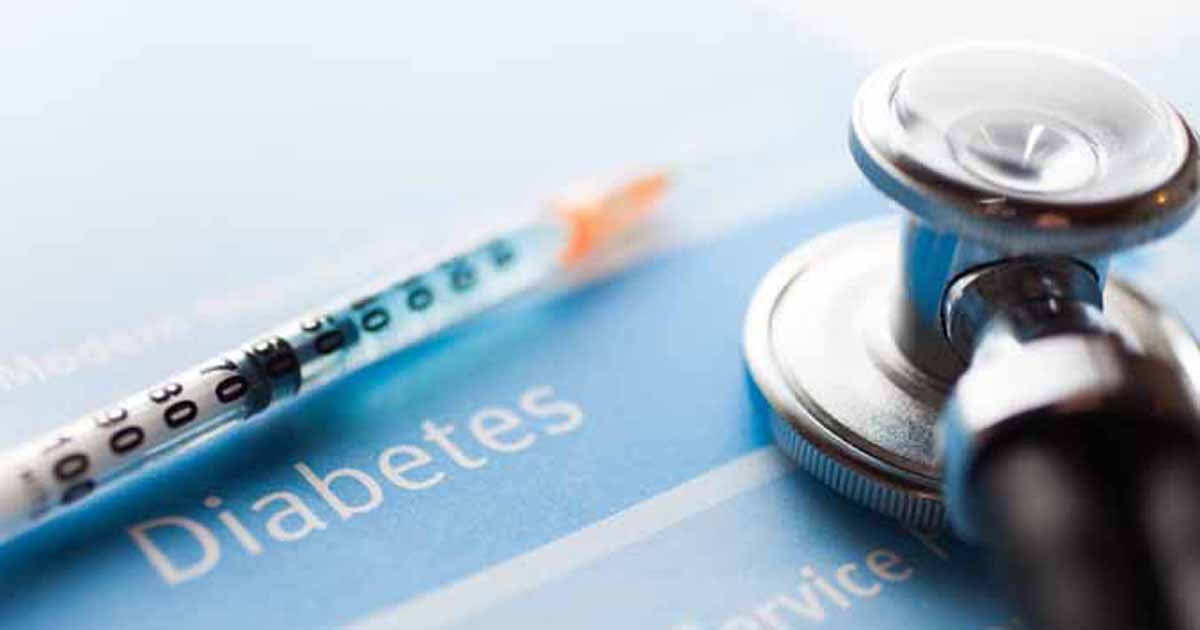

Having COVID-19 appears to raise a person’s risk of developing diabetes within the next year by about 40%, according to a very large new study of patients treated at U.S. Veteran’s Administration health systems.
“The risk is small but not negligible,” says Ziyad Al-Aly, MD, one of the study researchers who is chief of research and development at the Veteran’s Administration St. Louis Health Care System in Missouri.
“It’s really, really clear that all these roads are pointing in one direction, that COVID-19 increases the risk of diabetes up to a year later,” he says.
The study, based on records from more than 8 million people and 180,000 who had COVID-19, was published this week in Lancet Diabetes & Endocrinology by Yan Xie MPH, of Veterans Research and Education Foundation of Saint Louis, MO, along with Al-Aly.
The findings align with those from another study based on data from primary care in Germany. That study was smaller and of shorter length than the new VA study, but the results were consistent, says Al-Aly, who is also a clinical epidemiologist at Washington University School of Medicine.
Millions More with Diabetes
The long-term implications of COVID-19 increasing insulin risk are “profound,” write Venkat Narayan, MD, and Lisa R Staimez, PhD, both of the Rollins School of Public Health and Emory Global Diabetes Research Center at Emory University in Atlanta, in an editorial accompanying the new paper.
“Any COVID-19-related increases in insulin incidence could lead to unprecedented cases of diabetes worldwide—wreaking havoc on already over-stretched and under-resourced clinical and public health systems globally, with devastating tolls in terms of deaths and suffering,” they write.
In the U.S., “this is going to translate to literally millions more people with new [cases of] diabetes,” says Al-Aly.
Al-Aly says that the reason for the association between COVID-19 and diabetes are unknown and likely to be different from person to person.
Among the people who already had risk factors for developing type 2 diabetes, such as obesity or metabolic syndrome, having COVID-19 could accelerate that process and “put them over the edge,” he says.
For people without diabetes risk factors, having COVID-19 and all the inflammation it provokes in the body could lead to developing the disease, Al-Aly says.
COVID-19 increased the diabetes risk by 59% even for people who were not overweight, and by 38% among those with the lowest diabetes risk.
The risk of developing diabetes was higher for people with more severe cases of COVID-19 who had been hospitalized or in the ICU, but even people with mild cases had a higher risk for diabetes than people who hadn’t had COVID-19.
Al-Aly said that his group is now further analyzing the VA data for other health issues including heart disease and kidney disease, as well as the now well-documented “long covid” symptoms including fatigue, pain, and neurocognitive dysfunction.
They’re also investigating the impact of the COVID-19 vaccine to see whether the risks are mitigated in the case of breakthrough infections.
more recommended stories
 CTNNB1 Syndrome Study Explores Beta-Catenin Defects
CTNNB1 Syndrome Study Explores Beta-Catenin DefectsKey Takeaways Researchers in Spain are.
 Tuberculosis Breakthrough with Experimental Antibiotics
Tuberculosis Breakthrough with Experimental AntibioticsKey Takeaways Experimental antibiotics disrupt a.
 National Healthy Longevity Trial Receives Federal Support
National Healthy Longevity Trial Receives Federal SupportKey Summary Up to $38 million.
 Red Blood Cells Improve Glucose Tolerance Under Hypoxia
Red Blood Cells Improve Glucose Tolerance Under HypoxiaKey Takeaways for Clinicians Chronic hypoxia.
 Nanoplastics in Brain Tissue and Neurological Risk
Nanoplastics in Brain Tissue and Neurological RiskKey Takeaways for HCPs Nanoplastics are.
 AI Predicts Chronic GVHD Risk After Stem Cell Transplant
AI Predicts Chronic GVHD Risk After Stem Cell TransplantKey Takeaways A new AI-driven tool,.
 Red Meat Consumption Linked to Higher Diabetes Odds
Red Meat Consumption Linked to Higher Diabetes OddsKey Takeaways Higher intake of total,.
 Pediatric Crohn’s Disease Microbial Signature Identified
Pediatric Crohn’s Disease Microbial Signature IdentifiedKey Points at a Glance NYU.
 Nanovaccine Design Boosts Immune Attack on HPV Tumors
Nanovaccine Design Boosts Immune Attack on HPV TumorsKey Highlights Reconfiguring peptide orientation significantly.
 High-Fat Diets Cause Damage to Metabolic Health
High-Fat Diets Cause Damage to Metabolic HealthKey Points Takeaways High-fat and ketogenic.

Leave a Comment